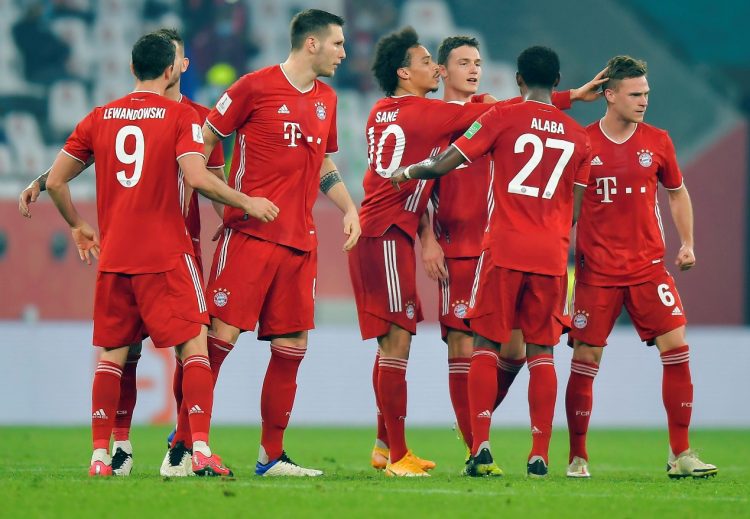Introduction:
Bayern Munich, one of the most successful football clubs in Germany and Europe, is known for constantly evolving and adapting to the changing dynamics of modern football. After securing multiple Bundesliga titles and achieving notable success in international competitions, Bayern Munich has faced the challenge of staying at the top while adapting to new tactical and strategic developments.
With the 2024/2025 season underway, Bayern Munich has undergone significant strategic adjustments under head coach Thomas Tuchel, who took over the reins in 2023 after Julian Nagelsmann’s departure. Tuchel’s tactical acumen and experience in managing top-tier teams have introduced a fresh approach to Bayern’s playing style, which may have profound implications for their performance in both domestic and European competitions.
In this article, we will explore the key strategic adjustments Bayern Munich has made this season under Tuchel’s leadership, and assess how these changes may influence their future matches, performances, and potential success in achieving their objectives.
Section 1: Changes in Tactical Setup Under Thomas Tuchel
- A More Flexible 4-2-3-1 Formation: Under Tuchel, Bayern Munich has moved toward a more flexible tactical approach, with the 4-2-3-1 formation being the foundation of their setup. While this system was employed by previous managers, Tuchel has introduced nuanced adjustments to the formation, allowing Bayern to be more adaptable in different match situations.
- Positional Play and Fluidity: One of the key strategic shifts is the emphasis on positional play and fluid attacking movements. In previous seasons, Bayern’s attacks were often reliant on the speed and individual brilliance of players like Serge Gnabry, Kingsley Coman, and Leroy Sané. Under Tuchel, Bayern is attempting to create more synchronized attacks, with midfielders like Joshua Kimmich and Leon Goretzka taking on a more prominent role in transitioning from defense to attack. Tuchel encourages the full-backs, Alphonso Davies and Benjamin Pavard, to push forward dynamically, creating overloads on the wings and providing additional width.
- Impact on Future Matches: This tactical fluidity allows Bayern to vary their offensive strategies, making them harder to predict for opponents. It enables them to control the tempo of the game and be more creative in the final third. The 4-2-3-1 formation also allows for greater control in midfield, with the double pivot of Kimmich and Goretzka providing defensive stability while still contributing to the offensive buildup. This will be particularly important in high-pressure matches in the Bundesliga and Champions League, where controlling possession and dictating the pace of the game are critical to securing victories.
- Defensive Solidity and High-Pressing Game: Tuchel has placed a strong emphasis on defensive organization and implementing a high-pressing game when out of possession. This includes making sure that Bayern presses high up the pitch, forcing opposition players into mistakes, and quickly recovering the ball in advanced positions.
- Increased Defensive Workrate: While Bayern Munich’s attacking play is often the focus, Tuchel has worked hard to improve the team’s defensive discipline. Players like Dayot Upamecano and Matthijs de Ligt have been encouraged to adopt a more proactive approach to winning the ball back, with the whole team working cohesively in a compact, pressing unit. This adjustment aims to minimize counter-attacks from opponents, especially in high-stakes Champions League matches where a single mistake can be costly.
- Impact on Future Matches: This more intense pressing system could significantly affect Bayern’s results in both the Bundesliga and the Champions League. Against teams that like to play out from the back, Bayern’s high press will force turnovers in dangerous areas, creating more opportunities for quick goals. Against possession-heavy teams, such as Manchester City or Barcelona, Bayern’s defensive solidity and ability to transition quickly from defense to attack will be vital for stifling their opponents and capitalizing on any lapses in possession.
Section 2: Strategic Changes in Attacking Play
- Focus on Versatility in the Attack: Under Tuchel, Bayern Munich has worked to be more unpredictable and versatile in their attacking play. While in previous years Bayern relied heavily on wide players like Coman and Gnabry, Tuchel has encouraged the team to rotate positions more frequently, allowing attacking players to interchange fluidly between roles.
- Position Switching Between Forwards: One of the noticeable changes is how the attacking players are encouraged to switch positions. For example, Thomas Müller might drift wide, while Leroy Sané or Serge Gnabry can move centrally, allowing Bayern to break down defensive structures through intricate movement. This positional fluidity makes Bayern’s attack more difficult to defend against, as it can overwhelm defenders and cause confusion in the opposition’s defensive shape.
- Utilizing the Full-Backs in Attack: The attacking full-backs, such as Davies and Pavard, are essential in Tuchel’s system. Their ability to overlap and provide additional support on the wings allows Bayern to stretch the opposition and create space for the attacking midfielders and forwards. This strategic use of width in attack opens up passing lanes and provides more options in the final third.
- Impact on Future Matches: This emphasis on attacking versatility will make Bayern Munich even more dangerous going forward. Teams that traditionally set up defensively or play with a low block will find it harder to contain Bayern’s fluid movement and position-switching. Additionally, the overlapping full-backs will be crucial in breaking down defensive lines, providing both width and depth to Bayern’s attacking play. This approach is particularly effective against teams that rely on compact defenses, as it stretches them and creates opportunities for Bayern to exploit spaces.
- Incorporating a Strong Central Presence: Tuchel has also sought to make Bayern more dangerous through the middle, encouraging players like Joshua Kimmich and Leon Goretzka to get forward and contribute to the attack. Having central midfielders who can make late runs into the box adds another layer of unpredictability to Bayern’s offensive game.
- Impact on Future Matches: A more balanced attacking approach, combining central runs with wide play, allows Bayern to stretch the opposition both vertically and horizontally. Against top teams in the Champions League, this strategic balance will be critical in breaking down tight defenses and creating scoring opportunities. It also provides flexibility in switching between attacking styles based on the opponent’s tactics.
Section 3: Player-Centric Adjustments and Tactical Flexibility
- Bayern’s Tactical Dependence on Key Players: While Bayern Munich’s overall strategic adjustments under Tuchel are notable, much of the team’s success will depend on individual players and how they adapt to the new system. For instance, the form of Joshua Kimmich as a deep-lying playmaker is crucial for dictating tempo and initiating attacks from the back. Similarly, Sadio Mané, now settled into his role in the attacking trio, will be key to Bayern’s ability to execute Tuchel’s tactical vision.
- Sadio Mané’s Role in the Attack: Mané, a dynamic and versatile forward, is expected to contribute significantly to Bayern’s new attacking strategy. His pace, creativity, and clinical finishing are valuable assets in Tuchel’s system, where counter-attacking play and quick transitions are emphasized. His ability to play across multiple attacking positions gives Bayern the fluidity and unpredictability needed to unlock even the most organized defenses.
- Kimmich’s Defensive and Offensive Contributions: Kimmich’s ability to balance both defensive responsibilities and offensive distribution is central to Bayern’s midfield. Tuchel’s tactical adjustments rely heavily on Kimmich’s ability to read the game, break up opposition attacks, and transition quickly to attack. His dual role as both a defensive pivot and a creative outlet will be crucial in Bayern’s bid for domestic and European success.
- Impact on Future Matches: The form of these key players will be a determining factor in how well Bayern can execute Tuchel’s tactical plans. In matches against top-tier European teams, Kimmich’s ability to control the midfield and Mané’s ability to score crucial goals will be essential in securing victories. Bayern’s tactical flexibility will allow them to adapt to different opponents, but much of their success will hinge on these individual contributions.

Section 4: Long-Term Impact and Potential for Success
- Adapting to European Challenges: Bayern Munich’s strategic adjustments under Tuchel are designed not only for success in the Bundesliga but also to ensure the team remains competitive in European competitions. The flexibility in attacking play, combined with a more intense pressing system and a solid defensive structure, makes Bayern a formidable opponent in the Champions League.
- Dealing with High-Pressing Teams: Tuchel’s high-pressing strategy will be particularly useful in facing teams that like to dominate possession and build from the back. Teams like Manchester City, Paris Saint-Germain, and Barcelona will find it difficult to play their usual game against Bayern’s pressing system, which could lead to turnovers and opportunities for Bayern to capitalize on.
- Title Challenges: In the Bundesliga, Bayern Munich remains the team to beat, and their strategic adjustments should allow them to maintain their dominance domestically. However, the real challenge lies in the Champions League, where Bayern will face some of Europe’s best teams. If Tuchel can refine these tactical adjustments and get the best out of his players, Bayern Munich will certainly be contenders for the Champions League title.
Conclusion:
Bayern Munich’s strategic adjustments under Thomas Tuchel reflect a desire to evolve and remain at the top of both domestic and international football. The tactical flexibility, high pressing game, and versatile attacking approach give Bayern the tools to overcome different styles of play and challenge for silverware. With key players such as Kimmich, Mané, and Gnabry adapting to Tuchel’s system, Bayern Munich is poised to compete at the highest level.
These strategic changes will likely have a significant impact on Bayern’s performance in future matches, both in the Bundesliga and the Champions League. If they can maintain consistency and stay injury-free, Bayern Munich could be one of the top contenders for major titles this season.






























Discussion about this post